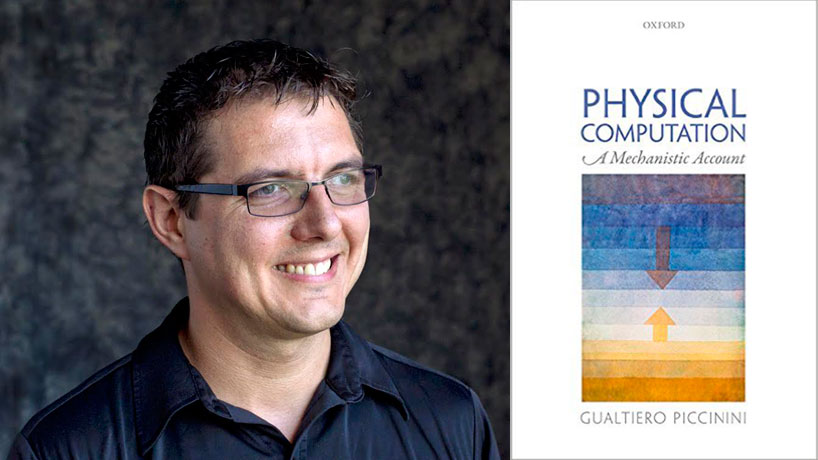
Professor Gualtiero Piccinini has written a new book that examines the philosophy of physical computation. (Photo by August Jennewein)
If you’re reading this, chances are you’re doing so on a smartphone or a computer. Experts would call the manipulation of electricity that brings us web pages, email and digital photographs “physical computation.”
In his new book, “Physical Computation: A Mechanistic Account,” University of Missouri–St. Louis philosophy Professor Gualtiero Piccinini takes on some of the tough philosophical questions surrounding the topic.
“Physical computation is everywhere around us,” Piccinini said.
And yet experts have not come to an agreement in regard to what actually constitutes computation. Some would argue that even a rock or a heart perform computations, but others, like Piccinini, argue that only more specialized work, like that of a computer can truly constitute computation in a robust sense.
“Getting clear on what physical computation is can help us build better theories of how our brain works as well as push our technology further,” he said. “For example, our computer circuits keep getting smaller but there is a limit to how small they can get. To know where the limit is, we need to solve difficult problems at the intersection between the physics of macroscopic objects and quantum mechanics in combination with the theory of computation and information processing.
“My book offers a systematic and detailed account of concrete computation that takes computer science seriously,” Piccinini said. “It also surveys and discusses previous accounts of computation, which should be helpful to newcomers into this area.”
In addition to his book, Piccinini has also co-authored an article that applies some of his work on physical computation to the study of the brain. It is part of a new book project on how cognitive neuroscience explains cognitive capacities.
“Cognitive neuroscientists think our brains work by performing computations,” said Piccinini. “Understanding computation as it occurs in the physical world helps us understand ourselves and the technology we use.”
“Physical Computation: A Mechanistic Account” was published by Oxford University Press and is available on the publisher’s website.
This story was written by Rob Barrett, a UMSL student pursuing an MFA in Creative Writing.















